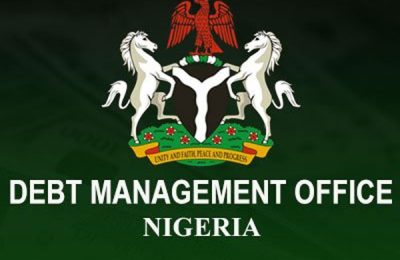THE recent wave of protests across Nigeria has once again highlighted the deep-seated frustrations among citizens regarding economic hardship and perceived bad governance. The demonstrations, which erupted in multiple cities, were sparked by a combination of rising inflation, unemployment, and a lack of trust in the government’s ability to address these issues effectively. While the protests were a reflection of the people’s dissatisfaction, they also provide important lessons for both the government and the citizens. Understanding these lessons and taking proactive steps is essential to avoid future unrest and to foster a more stable and prosperous nation.
Economic Hardship as a Catalyst for Unrest

The protests underscore the critical role that economic conditions play in societal stability. When basic needs such as food, shelter, and employment are out of reach for a significant portion of the population, it creates a fertile ground for discontent. The recent demonstrations were not just about economic issues in isolation but about how these issues have been exacerbated by poor governance and perceived corruption. The government must recognize that economic hardship can quickly lead to widespread unrest if not addressed promptly and effectively.
The Power of Collective Action
The protests demonstrated the power of collective action in holding the government accountable. Despite attempts to suppress these demonstrations, citizens from various backgrounds came together to voice their grievances. This unity across different socio-economic and ethnic lines shows that when people feel pushed to the brink, they can transcend divisions to demand change. This serves as a reminder to the government that dismissing the concerns of the populace can lead to a unified front that is difficult to ignore.

Communication Gaps Between Government and Citizens
A significant takeaway from the protests is the evident communication gap between the government and the people. Many citizens feel that their voices are not heard, and that the government is out of touch with the realities they face. The protests highlighted the importance of effective communication in governance. The government’s failure to adequately communicate its policies and the steps it is taking to alleviate economic hardship contributed to the mistrust and anger that fueled the protests.
Youth as a Driving Force
The role of the youth in these protests cannot be overstated. Young people, who make up a significant portion of Nigeria’s population, were at the forefront of the demonstrations. They are the most affected by unemployment and a lack of economic opportunities, and their frustrations were clearly evident. The protests highlighted the need for the government to engage more effectively with the youth, address their specific challenges, and create opportunities that harness their potential.
The Need for Institutional Reforms
The protests also highlighted the deep-seated need for institutional reforms. Many of the grievances expressed by protesters were linked to systemic issues such as corruption, inefficiency, and a lack of accountability within government institutions. The inability of institutions to deliver basic services and ensure transparency has eroded public trust, making it clear that without meaningful reforms, the government will continue to face challenges in maintaining stability and fostering development.
Steps the Government Can Take to Address Economic Hardship
Implement Comprehensive Economic Reforms
To address the root causes of the economic hardship, the government must implement comprehensive economic reforms that focus on improving the lives of the citizens. This includes tackling inflation, stabilizing the currency, and creating a more conducive environment for businesses to thrive. Policies should aim at boosting local production, reducing dependency on imports, and promoting entrepreneurship, especially among the youth. Additionally, the government must work towards reducing the cost of living by ensuring that essential commodities are available and affordable for the average Nigerian.
Enhance Social Safety Nets
Strengthening social safety nets is crucial in cushioning the impact of economic challenges on the most vulnerable populations. The government should expand social welfare programmes, such as cash transfers, food assistance, and healthcare subsidies, to reach more people in need. These programmes should be transparent and efficiently managed to ensure that resources are allocated to those who truly need them. By providing a safety net, the government can help alleviate some of the immediate pressures facing the population, thereby reducing the likelihood of unrest.
Invest in Job Creation and Skills Development
Unemployment, particularly among the youth, is a major driver of economic hardship and social unrest. The government must prioritize job creation through investments in infrastructure, agriculture, and technology sectors.
Additionally, skills development programmes should be expanded to equip the youth with the necessary skills to participate in the modern economy. By fostering a more skilled and employed workforce, the government can reduce unemployment rates and create a more resilient economy.
Strengthen Governance and Fighting Corruption
Addressing economic hardship cannot be separated from the need to strengthen governance and fighting corruption. The government must take concrete steps to improve transparency and accountability within its institutions. This includes implementing stricter anti-corruption measures, improving the efficiency of public services, and ensuring that public funds are used for the intended purposes. By building trust in government institutions, the government can create a more stable environment conducive to economic growth.
Engage in Meaningful Dialogue with Citizens
Effective governance requires constant engagement with the citizens. The government should create platforms for regular dialogue with different segments of the population, particularly the youth. This will help in understanding their concerns, building trust, and ensuring that policies are responsive to the needs of the people. Moreover, by involving citizens in decision-making processes, the government can foster a sense of ownership and collaboration, which is essential for long-term stability and development.
The recent protests in Nigeria serve as a strong wake-up call for the government to address the pressing economic challenges facing the country. The lessons learned from these protests highlight the urgent need for comprehensive economic reforms, better communication, and stronger, good governance. By taking proactive steps to alleviate economic hardship and engaging with the youth, who are the vanguard of the nation, the government can build a more inclusive and resilient Nigeria. The path forward will require commitment, transparency, and a genuine and sincere desire to improve the lives of all Nigerians, but it is a path that must be taken if the country is to achieve lasting peace and prosperity.
- Cajestan is with Department of History Department, Kaduna State University(KASU), Kaduna
READ ALSO: Lagos govt arrests six for urinating on rail track







